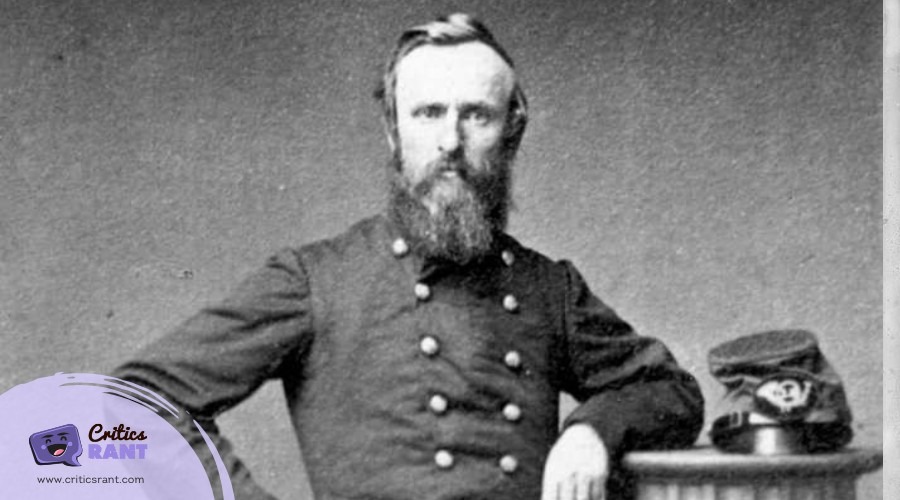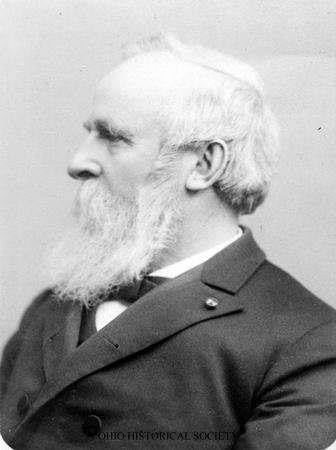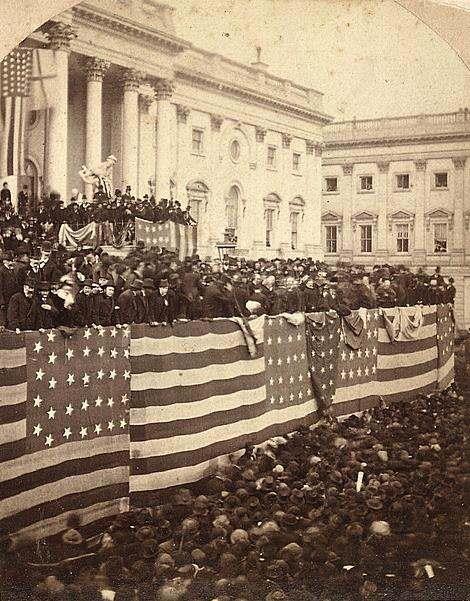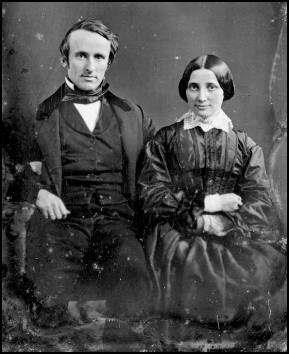Rutherford B. Hayes was the 19th President of the United States, serving from 1877 to 1881. His time as president was marked by efforts to heal the nation after the Civil War and improve how the government worked. Hayes is known not just for his political decisions but also for his unique personality. He was a calm and thoughtful leader, respected for his strong moral principles. This article explores the different aspects of Hayes’ personality, showing how his character influenced both his presidency and the history of the United States.
Early Life and Influences
Rutherford Birchard Hayes was born on October 4, 1822, in Delaware, Ohio. His father passed away before he was born, leaving his mother to raise Hayes and his sister alone. Despite these challenging circumstances, his family ensured he received a good education and strong moral guidance. This early family environment fostered resilience and independence in Hayes, traits that would later define his character.
Education and Early Career
Hayes attended Kenyon College in Ohio, where he excelled academically and graduated as valedictorian of his class. He then went on to study law at Harvard Law School, setting the foundation for his legal and political career. His education played a crucial role in shaping his analytical thinking and principled approach to both law and politics.
Military Service
The Civil War was a significant period in Hayes’ life that profoundly impacted his personality. He joined the Union Army, rising to the rank of Brevet Major General. His military service not only tested his leadership skills but also his courage and dedication to his country. The war experience strengthened his commitment to unity and reconciliation, themes that he carried into his presidency.
Early Political Involvement
Before becoming president, Hayes served in various political roles, including as a Congressman and Governor of Ohio. These early political experiences exposed him to the complexities of governance and reform, deepening his understanding of the issues facing his country. His time in politics before the presidency helped hone his diplomatic skills and his ability to navigate diverse political landscapes.
Personality Traits
Rutherford B. Hayes was known for his dignified and even-tempered personality, which greatly influenced his approach to both personal life and presidency. Here’s a closer look at the key traits that defined him:
Thoughtfulness and Deliberation
Hayes was recognized for his thoughtful nature. He was not one to make hasty decisions; instead, he carefully considered all aspects of an issue before coming to a conclusion. This deliberative approach was evident in his extensive diaries and letters, where he often weighed the pros and cons of various political and personal decisions.
Integrity and Moral Principle
A strong moral compass guided Hayes throughout his life and presidency. He was deeply committed to honesty and fairness, often prioritizing what he believed was right over what might have been politically expedient. This commitment to integrity was particularly noticeable in his efforts to reform the civil service and reduce corruption in government.
Resilience and Tenacity
Despite facing numerous challenges, including a contentious election that led to a compromise to secure his presidency, Hayes remained resilient. His ability to stay composed under pressure and bounce back from setbacks was a hallmark of his character, earning him respect even from his opponents.
Compassion and Humanitarianism
Hayes exhibited a genuine concern for the welfare of others. This compassion extended beyond his immediate circle to include broader societal issues. For example, he was an advocate for prison reform and education for all children, regardless of race. His humanitarian outlook was also reflected in his post-presidential work, which focused on educational initiatives and veterans’ affairs.
Pragmatism
While idealistic in his values, Hayes was also pragmatic when it came to governance. He recognized the need for compromise and was willing to adapt his strategies to achieve the best possible outcomes for the country. This pragmatic approach helped him navigate the complexities of the Reconstruction era, seeking to balance justice for freed slaves with the practicalities of political reconciliation.
These personality traits not only shaped Hayes’ leadership style but also left a lasting impact on how he is remembered as both a president and a person. His thoughtful, principled approach to leadership is a significant part of his legacy.
Leadership Style
Rutherford B. Hayes’ leadership style was marked by a blend of moral conviction and pragmatic decision-making. As president during the challenging Reconstruction era, Hayes demonstrated a nuanced approach to governance that sought to stabilize the nation and address deep-seated social issues. Here are the key aspects of his leadership style:
- Moderation and Balance: Hayes often sought a middle ground, advocating for moderate policies that could appeal to a broad segment of the population. He understood the importance of balancing different interests, especially in a country still healing from the Civil War.
- Commitment to Reform: One of the hallmarks of Hayes’ presidency was his dedication to reforming the civil service. He believed in merit over patronage, striving to ensure that government jobs were awarded based on competence rather than political connections.
- Diplomatic Approach: Hayes was known for his diplomatic skills, which were crucial in navigating the tense political landscape of his time. He worked to soothe relations with the Southern states and promote reconciliation between the North and South.
- Vision for Education and Social Welfare: Understanding the importance of education in achieving social progress, Hayes supported various educational initiatives. He also advocated for better treatment of Native Americans and promoted prison reform, reflecting his broader concern for social welfare.
- Military Leadership Experience: Hayes’ background as a military leader during the Civil War influenced his presidency. He brought a strategic mindset to his political role, often applying military principles of discipline and organization to his administration.
- Hands-On Management: Unlike some of his predecessors, Hayes took a hands-on approach to policy-making and administration. He was actively involved in the daily operations of his government, which helped him implement his reformist agenda more effectively.
Interpersonal Relationships
Rutherford B. Hayes was known for his cordial and considerate relationships with both his family and political contemporaries. These relationships played a significant role in both his personal satisfaction and his professional efficacy as President.
Family Life
- Lucy Webb Hayes: Hayes’s marriage to Lucy Webb was a central, stabilizing element of his life. Lucy was not only a devoted spouse but also a key advisor and confidante throughout his political career. Her influence was especially noted in her advocacy for temperance, which Hayes supported, leading to the alcohol-free policy at the White House during his presidency.
- Children: Hayes was a family-oriented man and a loving father to his eight children. His deep engagement in their lives and education exemplified his commitment to family values. His personal letters often reflect his concerns and hopes for his children, highlighting the warmth and depth of these relationships.
Political Relationships
- Colleagues and Subordinates: Hayes was respected by many of his colleagues for his fair-mindedness and integrity. He had the ability to foster loyalty among his subordinates through his earnest and sincere leadership style. Even though he faced opposition in political circles, his even-handed approach often won him the respect of his adversaries.
- Adversaries: In the turbulent times of his presidency, Hayes managed his relationships with political adversaries through a combination of firmness and diplomacy. For example, his dealings with the Democratic South were tactful, aiming to reduce hostilities and promote national unity.
- Post-Presidency Relations: After leaving office, Hayes maintained active correspondences and relationships with various political figures and activists. His ongoing engagement in educational and humanitarian causes kept him connected with many influential personalities of his time.
Broader Social Impact
- Public Engagement: Hayes believed in the power of personal influence and often engaged directly with the public. His speeches and public appearances were not only political tools but also ways to connect with the American people on a personal level.
- Humanitarian Work: His later life was characterized by significant involvement in educational and humanitarian efforts, including advocating for educational opportunities for African Americans and contributing to veterans’ causes. This work helped to foster relationships with a broad spectrum of society, extending his influence beyond his presidency.
Public Perception and Legacy
During his presidency, Rutherford B. Hayes faced a divided public opinion. His election itself was highly controversial, resolved only by the Compromise of 1877, which left many Democrats feeling bitter and skeptical of his legitimacy. However, Hayes was admired by others for his integrity and commitment to reform, especially in terms of civil service and efforts to end the patronage system. His stance on these issues, along with his moderate approach to the South’s Reconstruction, earned him respect from those who valued reconciliation and stability over punitive measures.
Evolving Public Image
Over time, Hayes’ public image saw a gradual transformation. Initially, he was viewed by many as merely a caretaker president, one who was more a product of compromise than a figure of strong public mandate. However, as historical perspectives have shifted, Hayes has come to be appreciated for his efforts to restore integrity to the executive office and for his forward-thinking policies on education and prison reform. His commitment to civil service reform, in particular, has been recognized as a significant step towards modernizing the American administrative state.
Legacy and Historical Reevaluation
- Civil Service Reform: Hayes’s most enduring legacy is perhaps his staunch advocacy for civil service reform. He set in motion policies that began the process of reducing corruption by basing government employment on merit rather than political affiliation. This initiative laid the groundwork for the later, more extensive reforms of the Pendleton Civil Service Reform Act.
- Education and Social Policies: Hayes was a strong proponent of universal education and took notable steps to support funding for schools. His administration also saw the enactment of policies aimed at improving the welfare of Native Americans, although these policies met with mixed results. His advocacy for prison reform and better treatment of inmates marked him as a progressive thinker on social welfare issues.
- Reconstruction and Southern Policies: Hayes’ handling of the end of Reconstruction is a complex part of his legacy. While he withdrew federal troops from the South—a move criticized by many as a setback for Black civil rights—his policy was also aimed at promoting self-governance and reducing national divisions. Over the years, historians have debated the effectiveness and impact of these decisions.
Conclusion
Rutherford B. Hayes was a president who led with integrity and a strong sense of duty. Although his time in office had its challenges, he is remembered for his efforts to bring honest government and fairness to politics. Hayes’ commitment to improving the civil service and supporting education has left a lasting impact on America. His presidency reminds us of the importance of leadership that values ethical conduct and the welfare of all citizens.
US Presidents | ||




